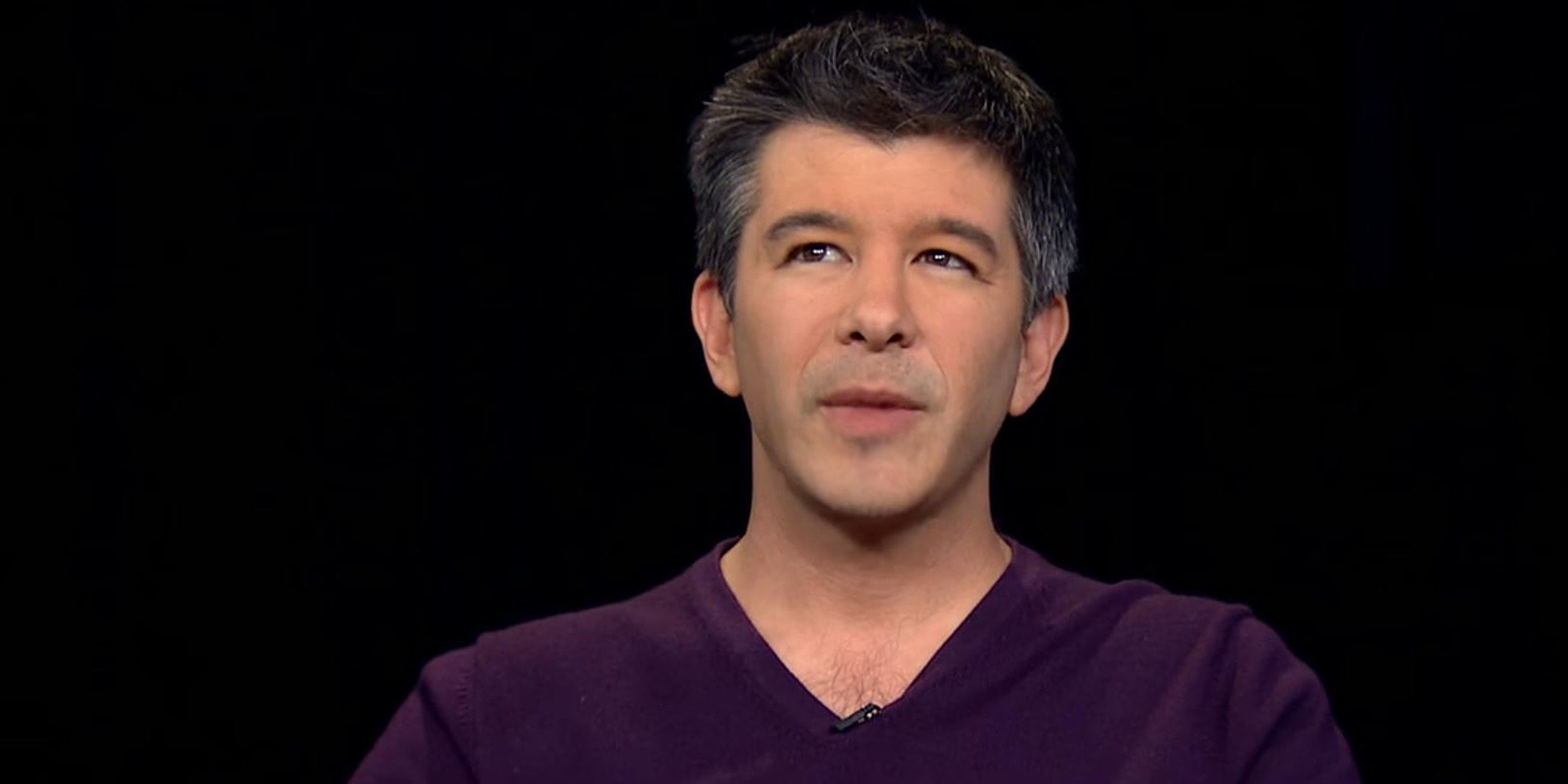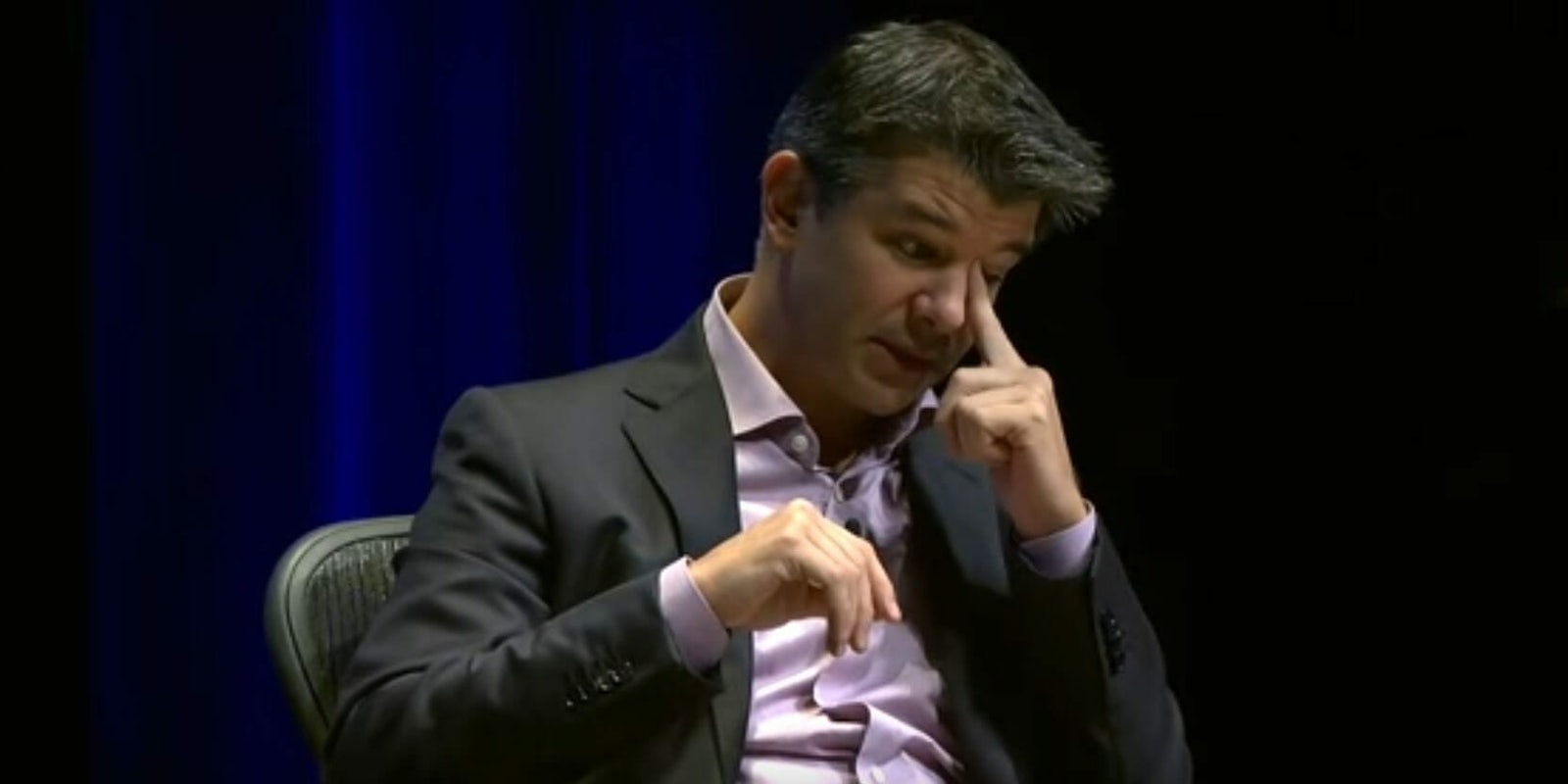According to a new in-depth profile by the New York Times, Apple’s Tim Cook called Uber’s Travis Kalanick to account in a meeting in 2015, sending a warning that struck fear into the hyper-controversial CEO: Start playing by the rules, or else.
Specifically, Cook summoned Kalanick to Apple’s headquarters for a meeting after the company reportedly uncovered deeply underhanded behavior on Uber’s part—the prominent ride-hailing app had been monitoring iPhone users’ data even after its app was deleted, a grave violation both of Apple’s official privacy requirements and of Cook’s guiding ethos regarding Apple consumers.
According to the report, Kalanick was racked with concern heading into the meeting, due to the seismic nature of what it would mean if his company was booted out of the iOS App Store. Cook, however, offered an ultimatum instead of a death blow, telling the Uber CEO that he needed to cease such behavior immediately in order to keep his app on iPhones.
In particular, the report’s sole quote from Cook is almost too perfect, especially if you’ve ever heard his soft, unassuming voice before. “So,” he reportedly told Kalanick, “I’ve heard you’ve been breaking some of our rules.”

The specific claims Times writer Mike Issac’s report lays out against Uber are extremely dire, both in terms of what they suggest about Uber’s corporate culture under Kalanick—already a topic of intense scrutiny—and for anyone who cares about privacy in the digital age. Uber was reportedly tracking and gathering information on people who’d deleted it from their iPhones, too. Even further, the company allegedly tried to hide its actions from Apple by “geofencing” the company’s headquarters—in short, digitally blocking anyone located out of the company’s Cupertino campus from seeing what Uber’s software was doing.
This report comes hot on the heels of a few major public relations problems for Uber, relating both to its corporate practices more broadly and to Kalanick more specifically. In 2014, an Uber executive reportedly plotted to dig up dirt about a journalist’s personal life, setting off a wave of condemnation and criticism. In February, the company came under fire for continuing to pick up fares during a taxi driver’s strike at New York’s JFK Airport during a protest against the Trump administration’s anti-Muslim refugee and travel ban.
Then, in March, it was revealed that the company had been using a tool called “Greyball” to evade and deceive law enforcement in cities where the app is frowned-upon or barred. The subsequent release of a video of Kalanick’s angry, profane response to one of his own drivers’ concerns about the direction of the company further fueled anti-Uber sentiments on social media, as did recent reports about how Uber tried to pull ahead of Lyft.
In short, it already looked like storm clouds were swirling around Uber, and the revelations in Issac’s profile will likely fuel those perceptions.


